第50章 THE PULPIT AND THE PEW.(6)
It is a very thoughtless thing to say that the physician stands to the divine in the same light as the divine stands to the physician, so far as each may attempt to handle subjects belonging especially to the other's profession. Many physicians know a great deal more about religious matters than they do about medicine. They have read the Bible ten times as much as they ever read any medical author. They have heard scores of sermons for one medical lecture to which they have listened. They often hear much better preaching than the average minister, for he hears himself chiefly, and they hear abler men and a variety of them. They have now and then been distinguished in theology as well as in their own profession. The name of Servetus might call up unpleasant recollections, but that of another medical practitioner may be safely mentioned. "It was not till the middle of the last century that the question as to the authorship of the Pentateuch was handled with anything like a discerning criticism.
The first attempt was made by a layman, whose studies we might have supposed would scarcely have led him to such an investigation." This layman was "Astruc, doctor and professor of medicine in the Royal College at Paris, and court physician to Louis XIV." The quotation is from the article "Pentateuch" in Smith's "Dictionary of the Bible," which, of course, lies on the table of the least instructed clergyman. The sacred profession has, it is true, returned the favor by giving the practitioner of medicine Bishop Berkeley's "Treatise on Tar-water," and the invaluable prescription of that "aged clergyman whose sands of life"----but let us be fair, if not generous, and remember that Cotton Mather shares with Zabdiel Boylston the credit of introducing the practice of inoculation into America. The professions should be cordial allies, but the church-going, Bible-reading physician ought to know a great deal more of the subjects included under the general name of theology than the clergyman can be expected to know of medicine. To say, as has been said not long since, that a young divinity student is as competent to deal with the latter as an old physician is to meddle with the former, suggests the idea that wisdom is not an heirloom in the family of the one who says it. What a set of idiots our clerical teachers must have been and be, if, after a quarter or half a century of their instruction, a person of fair intelligence is utterly incompetent to form any opinion about the subjects which they have been teaching, or trying to teach him, so long!
A minister must find it very hard work to preach to hearers who do not believe, or only half believe, what he preaches. But pews without heads in them are a still more depressing spectacle. He may convince the doubter and reform the profligate. But he cannot produce any change on pine and mahogany by his discourses, and the more wood he sees as he looks along his floor and galleries, the less his chance of being useful. It is natural that in times like the present changes of faith and of place of worship should be far from infrequent. It is not less natural that there should be regrets on one side and gratification on the other, when such changes occur. It even happens occasionally that the regrets become aggravated into reproaches, rarely from the side which receives the new accessions, less rarely from the one which is left. It is quite conceivable that the Roman Church, which considers itself the only true one, should look on those who leave its communion as guilty of a great offence.
It is equally natural that a church which considers Pope and Pagan a pair of murderous giants, sitting at the mouths of their caves, alike in their hatred to true Christians, should regard any of its members who go over to Romanism as lost in fatal error. But within the Protestant fold there are many compartments, and it would seem that it is not a deadly defection to pass from one to another.
So far from such exchanges between sects being wrong, they ought to happen a great deal oftener than they do. All the larger bodies of Christians should be constantly exchanging members. All men are born with conservative or aggressive tendencies: they belong naturally with the idol-worshippers or the idol-breakers. Some wear their fathers' old clothes, and some will have a new suit. One class of men must have their faith hammered in like a nail, by authority; another class must have it worked in like a screw, by argument.
Members of one of these classes often find themselves fixed by circumstances in the other. The late Orestes A. Brownson used to preach at one time to a little handful of persons, in a small upper room, where some of them got from him their first lesson about the substitution of reverence for idolatry, in dealing with the books they hold sacred. But after a time Mr. Brownson found he had mistaken his church, and went over to the Roman Catholic establishment, of which he became and remained to his dying day one of the most stalwart champions. Nature is prolific and ambidextrous.
While this strong convert was trying to carry us back to the ancient faith, another of her sturdy children, Theodore Parker, was trying just as hard to provide a new church for the future. One was driving the sheep into the ancient fold, while the other was taking down the bars that kept them out of the new pasture. Neither of these powerful men could do the other's work, and each had to find the task for which he was destined.